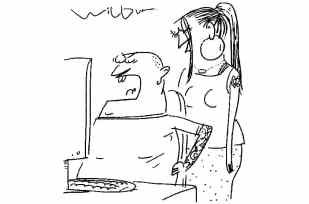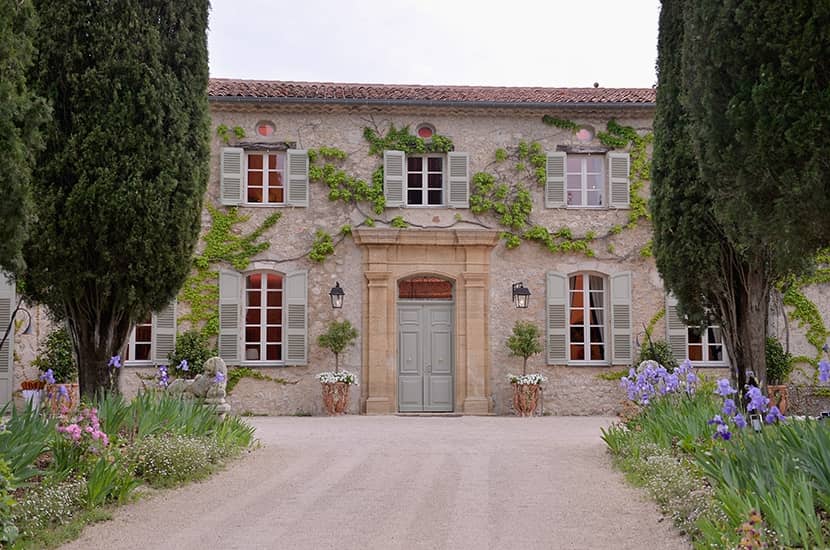When Catherine Dior, one of the heroic French Resistance workers captured by the Nazis, came face to face with her torturer at his trial in 1952, to receive the suggestion from his lawyer that it was a case of mistaken identity, she burst out furiously to the judge: ‘I know what I’m saying. This affair cost people their lives.’
It is one of the very few vivid glimpses we get of her in Justine Picardie’s book. The respected former editor-in-chief of Harper’s Bazaar has tackled what is the most difficult subject for any biographer: a person about whom virtually nothing is known. Claire Tomalin brought it off in The Invisible Woman, the story of Charles Dickens’s shadowy mistress Nelly Ternan. Catherine Dior is almost equally undocumented, save for her testimony to the War Crimes Commission.
So little is recorded about the sister of the great Christian that Picardie has had to build up a picture of her life by relying on the diaries and testimonies of others around her, or whose lives touched hers, be it working for the French Resistance, surviving the horrors of a Nazi concentration camp or in the rarefied atmosphere of French couture salons. Pages often go past without a single mention of our heroine. In fact this is a book largely about other people, some of them with barely discernible relevance. What, for instance, has the well-worn story of Edward VIII, Mrs Simpson and the abdication to do with either life in Ravensbruck camp or Dior’s New Look?

But enough of this nit-picking. As Picardie tells the story, we plunge almost straight into the second world war, when the Dior family found themselves near Cannes, in the Unoccupied Zone of France under the rule of Marshal Pétain (by June 1940 Paris had fallen and much of the country was under German administration).
At the end of the summer of 1941 Christian returned to Paris to seek work in couture, the clothes sold to a few rich clients, to the wives of Nazis or to black marketeers. Business soared. A new social world evolved in the capital as certain hostesses entertained those Germans they believed to be cultured and sympathetic. In these warm houses one could be sure of every luxury, including champagne and superb food, in contrast to the rest of Paris, which was cold and starving.
In Cannes a month or two later Catherine met Hervé des Charbonneries, tall, glamorous, an early supporter of the Resistance — and a married man. This did not prevent her from falling in love, and working for him. Picardie’s tireless research into archival material — ‘I am sitting at my desk, surrounded by piles of photocopied papers’ — reveals that Catherine both carried and hid intelligence reports for Hervé’s group in Cannes, made more dangerous when the Germans took over Unoccupied France in November 1942. When several key members of the group were arrested in the spring of 1944 it was time to flee; Catherine was alerted by the coded telephone call from Hervé: ‘We will dine tomorrow evening with your brother in Paris.’
Tortured by the Gestapo at their Paris headquarters, Catherine refused to name her associates
In Paris Catherine continued to work for Hervé’s group until she was picked up by the Gestapo on 6 July and taken to their headquarters. The tortures she suffered are recorded in her witness statement to the War Crimes Commission in 1945. Despite these, she refused to name her associates and even, through quick thinking, saw that her unit’s headquarters held no compromising material: ‘I had told them to remove everything from the office if I wasn’t back a quarter of an hour after the agreed time.’
In mid-August 1944 Catherine was deported, along with others, in the last convoy to leave Paris. At the same time, with the war clearly drawing to an end, many Germans were also leaving; a mere ten days later, the German garrison in Paris surrendered. After a week, Catherine’s train arrived at Ravensbruck. Picardie’s description of the horrors of the camp is accompanied by a moving account of her own visit to it (her father, as she tells us, was Jewish).
Catherine was one of the survivors, arriving back in Paris at the end of May 1945 — so thin that at first Christian did not recognise her. By the end of the year, she was well enough to start, with Hervé, who had moved in with her, a business selling fresh flowers from Provence, although her ordeals had left her with arthritis, injuries to her hips, back and feet and kidney problems, not to mention insomnia, nightmares, memory loss and depression.
Then comes a history of the Paris fashion houses, from Worth onwards; the story of Christian Dior’s rise to fame with the birth of the New Look, the War Crimes Court at Hamburg and pages about the British royal family. Finally we come to the trial of those who tortured Catherine and here we meet her angrily giving the evidence that ensured their execution.
On a visit to La Colle Noire, Christian’s house in Provence where Catherine spent six months, Picardie writes: ‘The vestiges of Catherine’s presence remain as a powerful reminder of the importance of freedom, and why it is worth fighting for.’ There are few truer words.






Comments